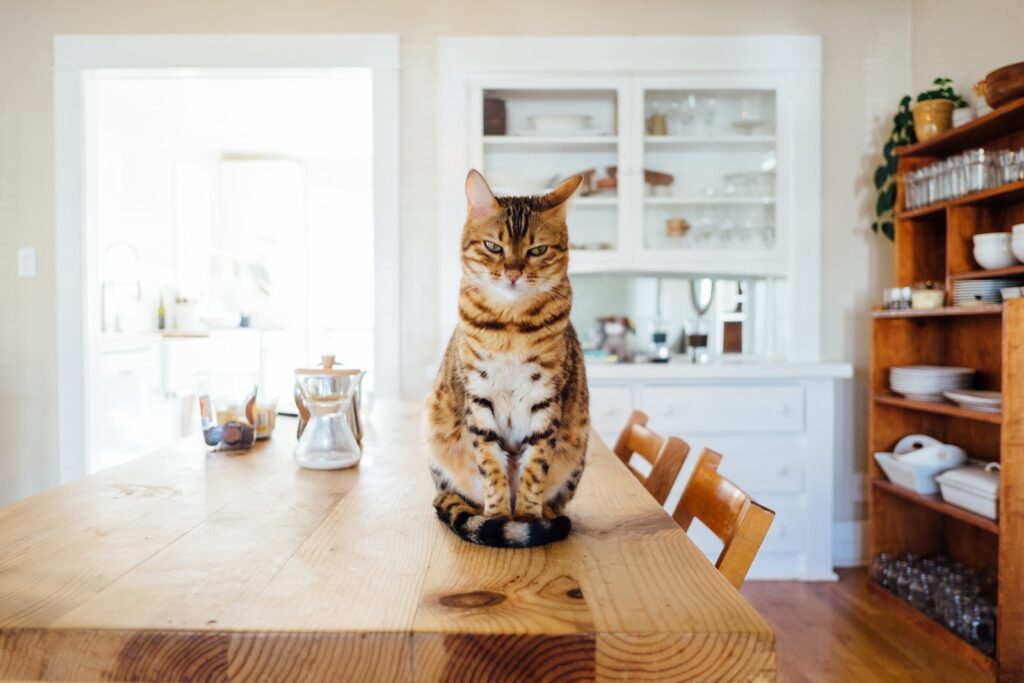Can Cats Eat Flies? — No, They can’t
Cats are natural predators, always on the prowl for small moving creatures like flies. While it may be entertaining to watch your cat chase and capture flies, you should not purposely feed flies to your feline companion. Flies do not provide any substantial nutritional value for cats and can even pose risks to their health.
Can Kittens Eat Flies?
Just like adult cats, kittens should not be fed flies either. Their tiny digestive systems are not designed to process insects like flies, and consuming flies may lead to gastrointestinal issues or other complications.
Things to consider when feeding flies to kittens?
There are no benefits to feeding flies to kittens, and it is best to discourage any attempts at consuming flies.
Nutritional Benefits of Flies for Cats — Why Flies are not Suitable for Cats
Fly Hunting as an Instinctual Behavior
Cats have a natural instinct to hunt, and chasing after flies allows them to fulfill this innate behavior. However, it is important to note that the act of hunting flies is more about the thrill of the chase rather than acquiring sustenance.
Potential Health Risks
Flies can carry various diseases, parasites, or harmful bacteria that can be transmitted to cats through ingestion. Consumption of flies can lead to gastrointestinal upset, vomiting, or even infections.
Nutritional Insufficiency
Flies do not offer any significant nutritional benefits to cats. Cats require a balanced diet consisting of high-quality protein, fats, vitamins, and minerals, which are best obtained through specially formulated cat food.
Potential Allergies: Can Cats Be Allergic to Flies?
Cats do not typically develop allergies to flies specifically. However, cats with existing allergies or sensitivities may experience adverse reactions if they come into contact with flies due to other factors, such as insect bites or exposure to certain allergens present on the fly’s body.
Symptoms of Fly Allergies in Cats
- Itching and Skin Irritation: Cats may excessively scratch or groom themselves, leading to skin inflammation or even secondary infections.
- Respiratory Issues: In some cases, cats may exhibit symptoms like sneezing, coughing, or difficulty breathing if they have inhaled allergens carried by flies.
- Gastrointestinal Disturbances: Allergic reactions can sometimes manifest as vomiting or diarrhea in cats.
What to Do If Your Cat Shows Symptoms?
- Consult a Veterinarian: If you notice persistent or concerning symptoms, it is crucial to seek professional advice from a veterinarian to diagnose and treat any potential allergies or health issues.
- Environmental Control: Minimizing the presence of flies and employing proper pest control measures can help reduce the exposure of allergic cats to potential allergens.
- Allergy Testing: In severe cases, the veterinarian may recommend allergy testing to identify specific triggers and formulate an appropriate management plan.
Recommended Amount: How Much Flies Can a Cat Consume?
Flies should not be considered a part of a cat’s regular diet. Feeding them flies is unnecessary and does not contribute to their nutritional needs. It is best to focus on providing complete and balanced cat food that meets all their dietary requirements.
Things to Consider When Feeding Flies to Cats
As mentioned earlier, it is not advisable to feed flies to cats due to the potential health risks and lack of nutritional benefits. Always prioritize a well-balanced cat food diet recommended by veterinarians to ensure your cat’s optimal health.
How to Feed Flies to Cats: A Quick Guide
Feeding flies to cats is not recommended. However, if your cat accidentally consumes a fly or catches one while exploring outdoors, it is generally harmless. Just monitor your cat for any adverse reactions and consult a veterinarian if necessary.
Conclusion
While it may be fascinating to watch cats chase after flies, it is essential to prioritize their overall well-being. Feeding flies to cats is unnecessary and potentially harmful, considering the risks associated with flies and the lack of nutritional benefits they offer. It is always best to provide cats with a balanced diet consisting of high-quality cat food and consult a veterinarian for any dietary concerns or questions.






